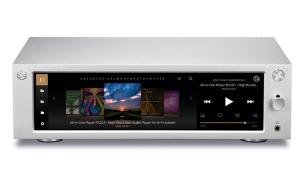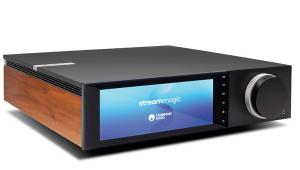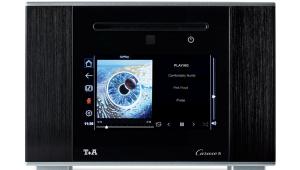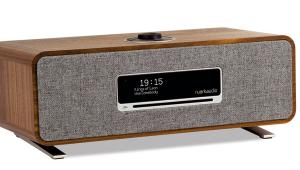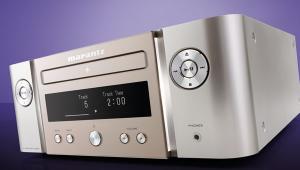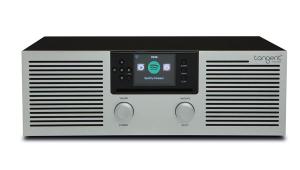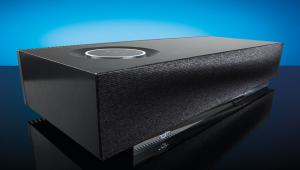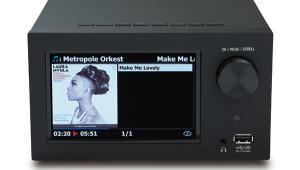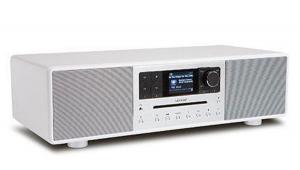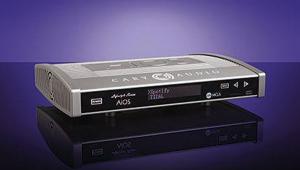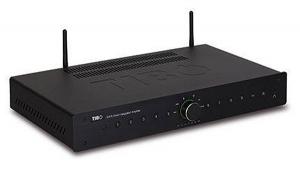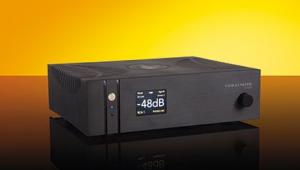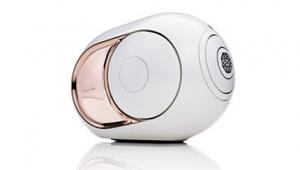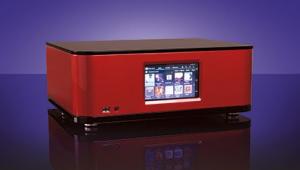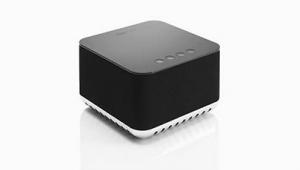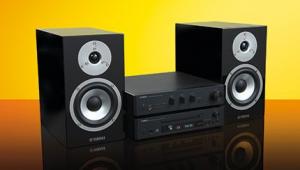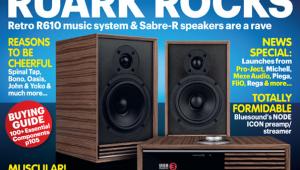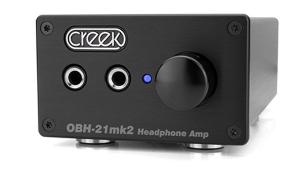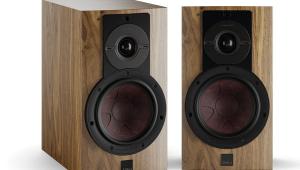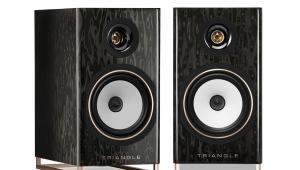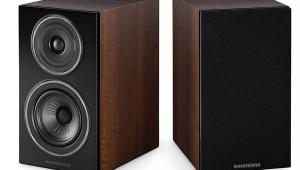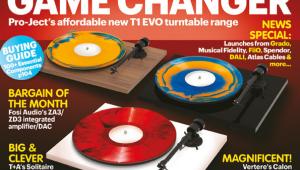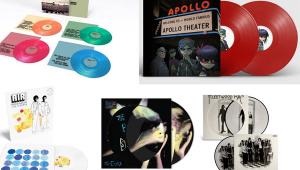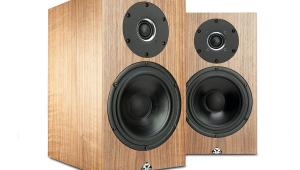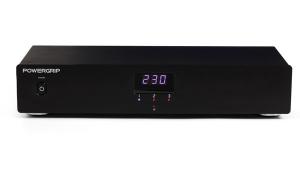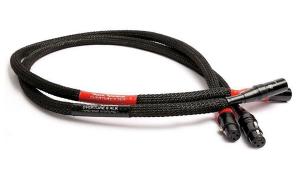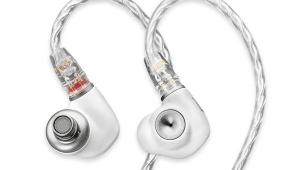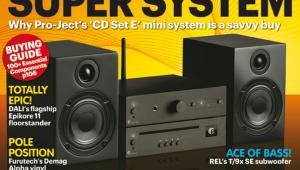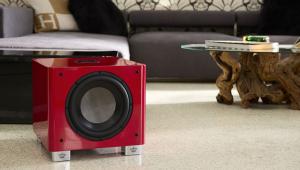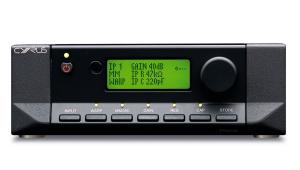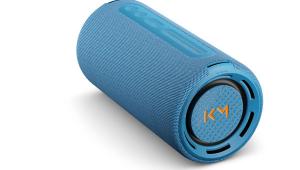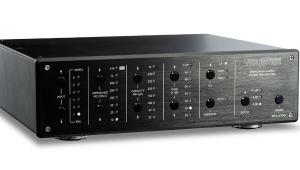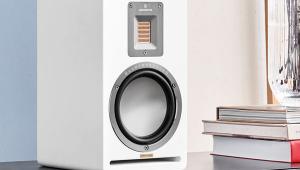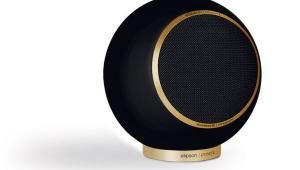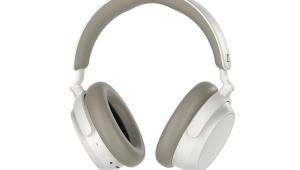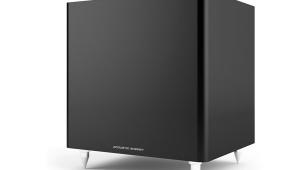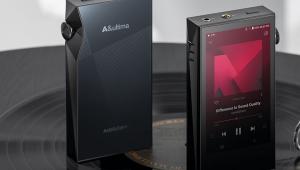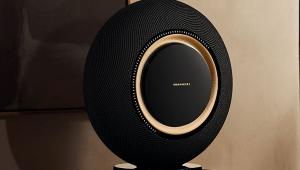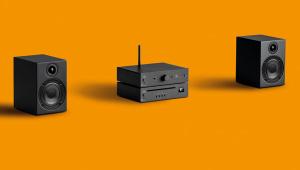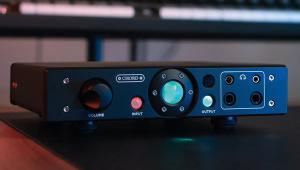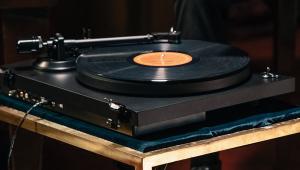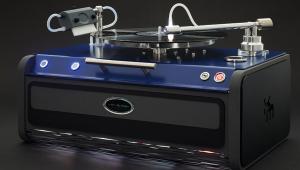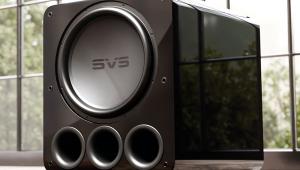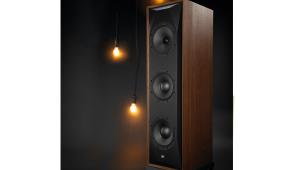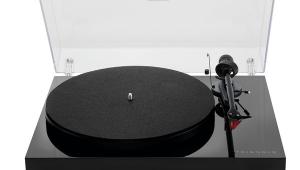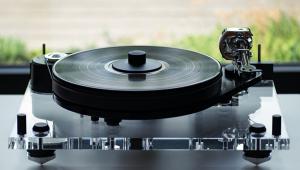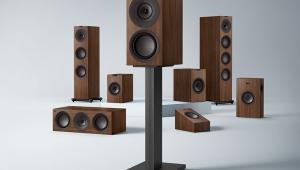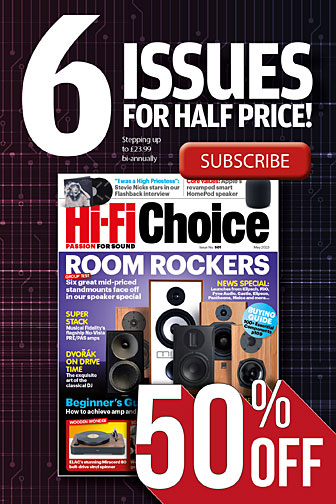McIntosh MXA70- £5,995
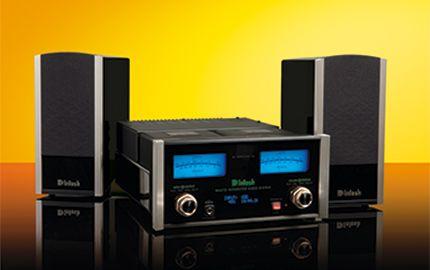
The small system isn’t a new idea. Indeed, those outside the rarefied climes of separates hi-fi would probably regard it as the norm. After all, do we really need yards of pressed steel casework, acres of cables and multiple power plugs? For that reason alone, since the late seventies when Aurex sold its first microsystem, many folks wanting decent quality sound from a system taking up only a small space have eschewed traditional hi-fi.
In the case of the new McIntosh, there’s an extra dimension – if you pardon the pun. You see, it’s a rather special brand. Those who are older will have known it for a good many decades, and know that traditionally the company makes very high quality – and seriously large – separates. Its amplifiers are a particular favourite of mine, not just because of the sound but also the retro styling, which has never really gone out of fashion.
In the MXA70, you see the latter in full effect. It looks like a McIntosh amplifier that’s shrunk in the wash. The two power meters are pure affectation; in practice they’re pretty useless because the ballistics of the needles aren’t fast enough to capture peaks. The reason they’re fitted, of course, is that they are iconically McIntosh; it would be like a late fifties Chevrolet without fins, were it not thus equipped. So not only is the MXA70 a high quality mini system, it is a McIntosh too, and advertises its status from the moment you power it up and those meters start glowing bright blue back at you.
The problem is that it costs £5,995, not an inconsiderable sum. Who would pay such an amount for a product such as this? I suspect the company wants to sell to existing customers – who doubtless have a spare bedroom or four, plus a kitchen and triple garage to fill with sound. And there’s also that new demographic, lifestyle consumers who want a lovely thing – that just happens to play music.
The MXA70 is a smallish, but not tiny, one-box system that comprises a power amplifier, DAC, analogue preamplifier and a good-quality headphone amplifier that sports a new adaptation of McIntosh’s Autoformer technology to give three headphone impedance ranges. Added to this, there’s a Headphone Crossfeed Director (HXD) feature to allow high-quality recordings to image like conventional speakers, the company says. Last but not least, there’s a pair of very nice looking compact loudspeakers bundled, too.
The amplifier section is an old-school Class AB design using the company’s ThermalTrak output transistors, said to have precise bias current control for ultra-low crossover distortion. It’s claimed to deliver 50W into 8ohms, although the company says it isn’t rated for 4ohm operation. The DAC section uses the popular Burr-Brown PCM1795 DAC chip, and offers coaxial, optical, AES/EBU and USB inputs; two line inputs are offered, one via RCA phones and the other via XLRs.
The supplied loudspeakers are made in the USA and are very well presented. A 20mm dome tweeter with dampening cloth surround, said to give high sensitivity and an extended response free of break-up modes, is fitted. At 2kHz this crosses over to a 100mm treated paper (with a rubber surround) bass unit, using a curvilinear cone profile. A fairly complex 14-element crossover is fitted, and sensibly includes a self-resettable fuse. McIntosh says second-order filters are used on both midrange/bass and tweeter for improved power handling and vertical dispersion.
The MXA70 is a beautiful thing to look at, with an excellent finish. From the mirrored lower chassis to the flawless satin black of the transformer casings, there’s nothing not to like. The binding posts are good and chunky, and McIntosh supplies two runs of good spade-ended loudspeaker cable. The blue fluorescent front panel display matches the power meters perfectly, and the control knobs resemble grown-up McIntosh products, although the action on the volume control is a bit sharp.
Sound quality
Starting with the standard analogue input and MXA70 sounds lots of fun. It has a clean, fast and direct sound, but is decently sophisticated too; indeed it reminds me of a full-size Macintosh amp. It’s certainly not a soft and fluffy delivery; there’s no artificial added warmth but it has a smoothness and a refinement that you wouldn’t expect from a mini system. 4hero’s Give In via the unbalanced analogue input really communicates the urgency and the intensity of the music.
The loudspeakers are optimised for tabletop or bookshelf use, and benefit from being pushed closer to a rear wall than is normal, and slightly toed-in. Thus positioned they made a nice noise, but you’d never accuse them of having an overly powerful or extended bass. This is simply because of the physics involved; they’re small and simply cannot reach down to the bottom octaves. Again, given the fact that it’s a small system, this could even be seen as a plus point, as they’re not likely to set off room resonances.
Feed the unit with a good CD transport via its coaxial in, and the sound tightens up further, and fills out a little spatially. It’s a pretty wide presentation, and suddenly acquires even more thrust, at the expense of a little warmth. The McIntosh has a lot of get-up-and-go and this is even more apparent when you dispense with the analogue input. Supertramp’s classic Breakfast in America album is a little forward on CD, but the Macintosh remains smooth and enjoyable with no shrillness or glare. It gives a bright, bracing sound, but one that never descends into fatigue-inducing hardness. Indeed, it really manages to capture the poignancy of the song, tracking the dynamics well and doing really well with the rhythms.
Room to breathe
Via USB, Air’s All I Need is sweet and spacious, the unit never proving boring but certainly not overly hard either. The fulsome bass guitar is carried well, giving a bouncy and sumptuous feel, and you can really hear the instrument starting and stopping in the mix. The drive it gives to the song keeps things in the groove, while the midband carries the vocals with sensitivity and sophistication. It images well and pushes things wide stage left and right, although it doesn’t drop things back quite as far as it should. Overall, it functions very capably being driven with a computer as a transport.
The main problem here is the speakers; they’re good but they’re not as special as the main unit, by a fair way. Which is why the company has made serious provision for headphones, that and the fact those living in space-limited places may rely on them. Via Philips Fidelio X1s, it’s a satisfying sounding product giving one great insight into the music. What it can’t do is give the clarity, power, precision and grip of a full-sized system costing a similar amount of money; still the McIntosh covers its tracks well and is never less than a pleasing partner to play music on.
Conclusion
The McIntosh MXA70 is a lovely system alright, one that’s very hard to dislike. Any concerns that the company has done a cynical ‘cash-in job’ to leverage its brand should be abandoned here; the unit is a solid and conscientious product with oodles of high-end charm. Still, it is not going to get you replacing your main system, I suspect. It’s a fine small system, but isn’t wondrous in any sonic sense. Indeed its problem is that there are several very good, and substantially cheaper one-box systems on sale that match or even better it for sonics. That’s why, if you want style and/or the kudos of the brand, you should seriously consider this dinky diamond, but don’t expect it to give the ultimate sound-per-pound, because it doesn’t. Part of what you’re paying for is the cachet of owning a real genuine McIntosh product, and for many that will suffice.
LIKE: Lovely styling; great build; fun sound
DISLIKE: Lacks scale and insight; expensive
WE SAY: Charming, characterful one-box system, but it will cost you!
DETAILS
PRODUCT McIntosh MXA70
ORIGIN USA
TYPE Integrated audio system
WEIGHT 23.2kg
DIMENSIONS (WxHxD) 559 x 276 x 457mm
FEATURES
• Claimed power output: 50W per channel into 8ohms
• 4x digital inputs: optical; coaxial; USB; AES/EBU
• 2x analogue inputs; RCA and XLR
DISTRIBUTOR Jordan Acoustics Ltd
TELEPHONE 01202 911886
WEBSITE mcintoshlabs.com
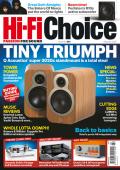 |
Inside this month's issue:
Q Acoustics 3020c standmount loudspeakers, Perlisten R10s active subwoofer, Quad 33 and 303 pre/power amps, Acoustic Solid Vintage Full Exclusive turntable, newcomer Fell Audio Fell Amp and Fell Disc and lots, lots more...
|
